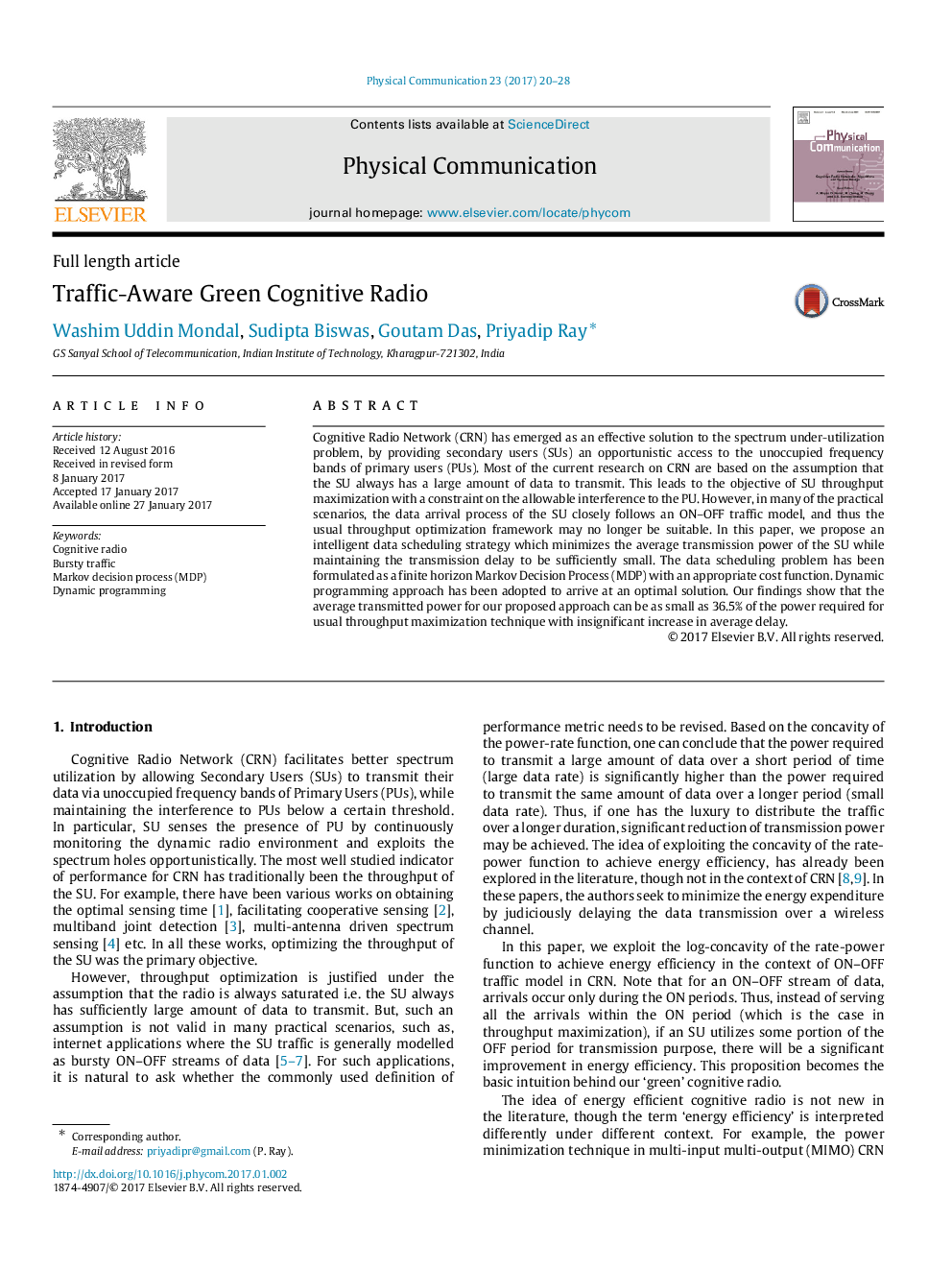| Article ID | Journal | Published Year | Pages | File Type |
|---|---|---|---|---|
| 4957642 | Physical Communication | 2017 | 9 Pages |
Abstract
Cognitive Radio Network (CRN) has emerged as an effective solution to the spectrum under-utilization problem, by providing secondary users (SUs) an opportunistic access to the unoccupied frequency bands of primary users (PUs). Most of the current research on CRN are based on the assumption that the SU always has a large amount of data to transmit. This leads to the objective of SU throughput maximization with a constraint on the allowable interference to the PU. However, in many of the practical scenarios, the data arrival process of the SU closely follows an ON-OFF traffic model, and thus the usual throughput optimization framework may no longer be suitable. In this paper, we propose an intelligent data scheduling strategy which minimizes the average transmission power of the SU while maintaining the transmission delay to be sufficiently small. The data scheduling problem has been formulated as a finite horizon Markov Decision Process (MDP) with an appropriate cost function. Dynamic programming approach has been adopted to arrive at an optimal solution. Our findings show that the average transmitted power for our proposed approach can be as small as 36.5% of the power required for usual throughput maximization technique with insignificant increase in average delay.
Related Topics
Physical Sciences and Engineering
Computer Science
Computer Networks and Communications
Authors
Washim Uddin Mondal, Sudipta Biswas, Goutam Das, Priyadip Ray,
